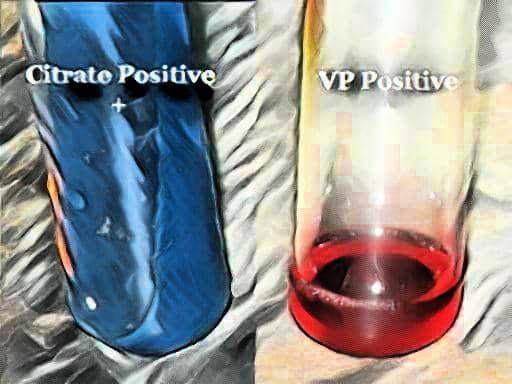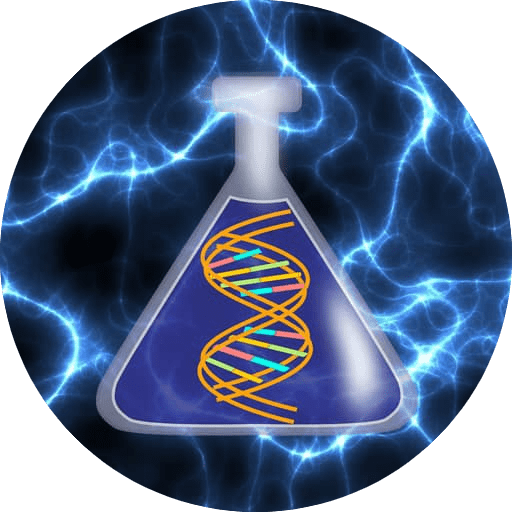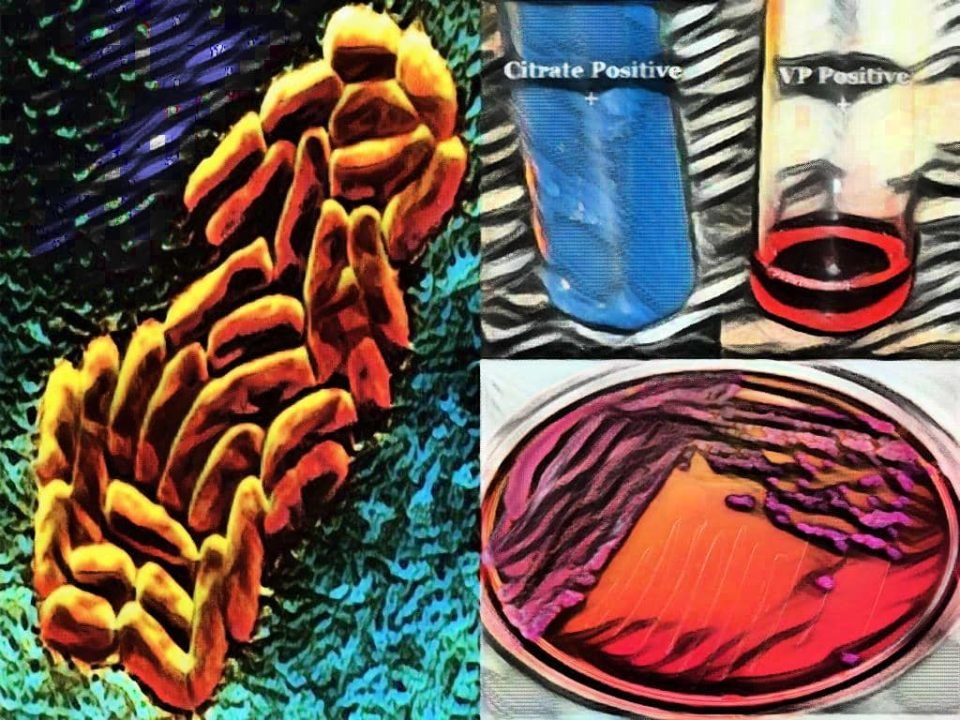Hey, Good to see you here 😀 …… In this Article, we’re gonna discuss in detail about various biochemical tests for Klebsiella pneumoniae….. If you have any queries, don’t forget to mention in Comments…Thanks
There are so many biochemical reactions for the well known causative agent of Nosocomial Infections specially Pneumonia, UTI (Urinary Tract Infections), Septicemia, Pyogenic Infections and Sometimes Diarrhea i.e. the Klebsiella pneumoniae abbreviated as K. pneumoniae.
However, only a few reactions are most commonly used and are medically important for distinguishing pathogenic strains of K. pneumoniae from other non- pathogenic strains as well as from other species of Klebsiella, which are as follows:
Indole Negative
Citrate Positive
Urease Positive
Methyl red (MR) Negative
Voges – Proskauer (VP) Positive
Pink colored – LF colonies on MacConkey agar medium.
Purple colonies on EMB Agar medium without Green Metallic sheen.
Besides that of various biochemical reactions and Sugar fermentation tests, certain enzymatic reactions are also medically important to distinguish Klebsiella pneumoniae from other Klebsiella sp.

Below is the list of these Enzymatic Reactions and various other biochemical tests for Klebsiella pneumoniae which have great importance in research and for knowledge but are not routinely employed:
TESTS RESULTS
Catalase +VE (POSITIVE)
Citrate +VE (POSITIVE)
Esculinase +VE (POSITIVE)
Indole -VE (NEGATIVE)
Nitrate Reduction +VE (POSITIVE)
ONPG +VE (POSITIVE)
Urease +VE (POSITIVE)
VP (Voges Proskauer) +VE (POSITIVE)
Coagulase -VE (NEGATIVE)
DNase -VE (NEGATIVE)
H2S Production -VE (NEGATIVE)
Methyl Red -VE (NEGATIVE)
Oxidase -VE (NEGATIVE)
Arginine Dehydrolase -VE (NEGATIVE)
Ornithine decarboxylase -VE (NEGATIVE)
Tryptophanase -VE (NEGATIVE)
Klebsiella pneumoniae and other species of Klebsiella ferment various sugars producing acid with gas.
But these sugar fermentation tests are of no diagnostic value in routine laboratory tests except Glucose fermentation test which is commonly used to differentiate Klebsiella pneumoniae, which produces Acid with Gas, from other Pathogenic & non-pathogenic Klebsiella species especially from Klebsiella rhinoscleromatis, which do not produce gas during Glucose fermentation.
The other sugar fermentation tests which are described below are of great importance in research work.
SUGARS RESULTS
Adonitol +VE (POSITIVE)
Arabinose +VE (POSITIVE)
Cellobiose +VE (POSITIVE)
Dextrose +VE (POSITIVE)
Fructose +VE (POSITIVE)
Galactose +VE (POSITIVE)
Glucose +VE (POSITIVE)
Lactose +VE (POSITIVE)
Maltose +VE (POSITIVE)
Mannitol +VE (POSITIVE)
Mannose +VE (POSITIVE)
Melibiose +VE (POSITIVE)
Raffinose +VE (POSITIVE)
Rhamnose +VE (POSITIVE)
Salicin +VE (POSITIVE)
Sorbitol +VE (POSITIVE)
Sucrose +VE (POSITIVE)
Trehalose +VE (POSITIVE)
Xylose +VE (POSITIVE)
Dulcitol -VE (NEGATIVE)
That’s all about the various Biochemical tests for Klebsiella pneumoniae (K. pneumoniae)
Frequently Asked Questions (FAQs)
Q1. What are two biochemical tests that can be used to identify bacteria?
Two common biochemical tests used to identify bacteria are the catalase test, which detects the presence of the enzyme catalase, and the oxidase test, which detects the presence of the enzyme cytochrome oxidase.
Q2. What are the biochemical tests to differentiate bacteria?
Biochemical tests used to differentiate bacteria include tests for carbohydrate fermentation, motility, indole production, and urease production. Other tests, such as the Voges-Proskauer test and the citrate utilization test, can also be used.
Q3. Which one biochemical test can differentiate K. pneumoniae from K. oxytoca?
The indole test can differentiate K. pneumoniae, which is indole-negative, from K. oxytoca, which is indole-positive.
Q4. What are the 4 biochemical tests?
The four commonly used biochemical tests for bacterial identification are the catalase test, oxidase test, indole test, and the urease test.
Q5. What are the four biochemical tests used for identification of bacteria?
The four commonly used biochemical tests for bacterial identification are the catalase test, oxidase test, indole test, and the urease test. These tests help to identify different enzymes produced by the bacteria.
Q6. What are the biochemical tests used for identification?
Biochemical tests used for bacterial identification include tests for the presence of enzymes such as catalase, oxidase, urease, and indole. Other tests may include tests for fermentation of specific carbohydrates, motility, and the ability to utilize citrate or produce hydrogen sulfide. These tests help to differentiate between different bacterial species based on their unique characteristics.
User Review
( votes)
Laboratory Hub aims to provide the Medical Laboratory Protocols & General Medical Information in the most easy to understand language so that the Laboratory Technologist can learn and perform various laboratory tests with ease. If you want any protocol to be published on Laboratory Hub, Please drop a mail at contact@laboratoryhub.com. Happy Learning!

